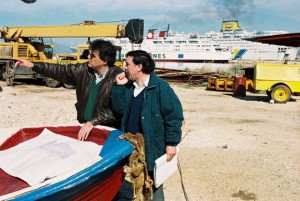 The difficulties associated with the crisis must not call structural policies into question. On the contrary: Mediterranean states’ tradition of support should continue, with an emphasis on industrial policies and continued efforts at opening up their markets.
The difficulties associated with the crisis must not call structural policies into question. On the contrary: Mediterranean states’ tradition of support should continue, with an emphasis on industrial policies and continued efforts at opening up their markets.
The resumption of production could be a remedy to the current crisis in the Mediterranean. In its first report on “Crises and methods of emerging from crises in the Mediterranean”, Femise states the view that “long-term economic strategy should rest on the pursuit of international openness (…) “both in the North and the South.
Given that traditional structural policy in Mediterranean countries is based on support for major infrastructure, this must continue as said infrastructure helps open up regions.
“One must avoid the creation of pockets of wealth around capital cities”, asserts Professor Patrick Plane, who teaches at the Faculty of Economics at Clermont-Ferrand.
Professor Plane also advocates a resumption of industrial policies via the diversification of initial activities – which are often the product of the exploitation of raw materials – towards greater openness to service exports, citing the example of call centres and the increasing importance of hospital care as an export for Tunisia.
Mediterranean countries must broaden the base of their manufacturing sector in order to cope with competition.
FEMIP countries must promote access to credit for SMEs, reduce the burden of administrative formalities and, above all, promote convertibility through efforts to establish a stabilisation mechanism via the European Central Bank or – why not? – create a Mediterranean bank.
Photo by Europa, Econostrum.
Article by Nathalie Bureau du Colombier, Econostrum. It belongs to a series of articles published in the context of the partnership between Econostrum and Femise for the year 2010. These articles have been prepared for a special FEMSE event for the publication of FEMISE-EIB study on crisis.
You can find this topic and all information at the following address: www.econostrum.info. Registration for the Econostrum newsletter is available here:http://www.econostrum.info/subscription/


